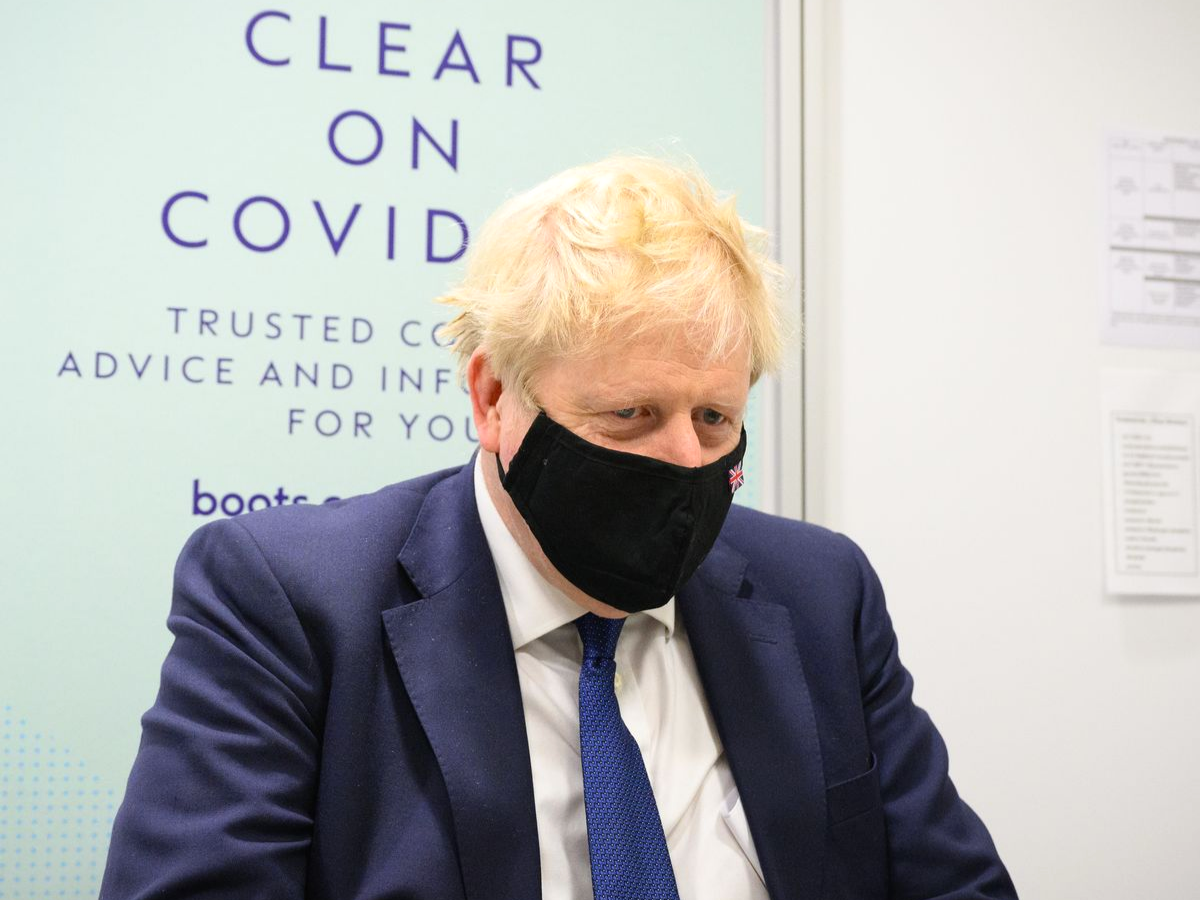Remaining COVID-19 restrictions are no longer legally binding in Northern Ireland and England is soon to follow suit as Boris Johnson leans into the plan to ‘live with covid’. Lifting final restrictions may be cause for celebration for some, but it is a dark tiding for others.
Cause for concern
While the Omicron variant is less severe than its predecessors, the pandemic is not yet over. More than 400,000 people tested positive in the last week, and ending isolation for positive cases will likely drive this number up further. In light of this, people with compromised immune systems are once again having to limit their activities due to the end of measures that protect them.
Enforced mask-wearing in indoor public spaces and on public transport meant that immunocompromised people were able to engage with society again after many months of shielding. Having lived through many months in isolation, they revelled in the fact that they could take trips to the shops or cautiously visit loved ones thanks to the protective steps of those around them. Now, however, their worlds have just got a little smaller again.
Many experts believe that ‘tests will soon only be used in settings such as care homes and hospitals’, this reduced testing will make it difficult to gauge the levels of covid in the community – making it even more difficult for individuals to take proportionate protective measures. Philip Anderson of the MS Society stated that the end of restrictions will ‘heap more worry and confusion’ on thousands of people with weakened immune systems. Amidst this uncertainty of how the public will act and how they can best protect themselves, many are having to return to shielding.
The end of enforced mask-wearing will not immediately lead to people ditching their face coverings – many people continue to wear them in settings where they are not legally required – but this will likely lead to a tapering off of the habit. As fewer people wear masks, they will progressively phase out until only a small number of people keep up the practice.
Some people plan to continue using face coverings whenever they are sick in future (with covid or any other contagious illnesses), stating that the pandemic has highlighted obvious ways we can keep each other safe. Others are eager to never have to wear a mask again.
Restrictions or protections?
Calling efforts to protect the population from COVID-19 ‘restrictions’ seemed like an innocuous choice. Lockdowns, mask mandates and the closures of hospitality venues were indeed restricting our freedoms – so the name was technically correct – but they were also doing huge amounts to save and protect lives. Had these efforts been branded ‘covid protections’ as opposed to ‘covid restrictions’, would they have been met with a different sentiment by members of the public?
Changing the name now would have little impact, and titling them ‘protections’ from the outset would likely have done little to assuage true lockdown sceptics, but this tiny change in phrasing may have shifted the wider public sentiment in favour of masking wearing. The attempted re-branding of lockdown measures as ‘protections’ has however met criticism from those who feel it is simply a way to make limiting freedoms more palatable to the public.
Encouraging caution
Now that all covid protections are coming to an end in England – including the need to self-isolate following a positive test – continuing to take steps to protect those around you has become a matter of personal choice. Isolation will no longer be enforced, but it will likely still be encouraged. Moving the focus to how measures such as masks and ventilation are protecting others (as opposed to how we as individuals are being restricted) could encourage continued caution without the need for enforcement.
A recent YouGov survey revealed that 75% of Britons believe isolation should still be a legal requirement following a positive test, so it is clear that a large majority of the public still have concerns about COVID-19 and will hopefully continue to take steps to protect themselves and those around them.
Continued mask-wearing on public transport or in busy shops will help make the world more accessible for those who are immunocompromised or worried about the virus. After 2 years of wearing masks, it has become second nature to many of us. If the mild inconvenience of popping on a mask when you pop into the shops is enough to enable others to participate fully in society, then that is a very small price to pay.
Recommended for you

Antidepressant Prescribing at Six-Year High
More people are taking antidepressants than ever. Is this a dark sign of the times or an indication that mental health stigma is changing?

Can AI be Used to Determine Cancer Recurrence?
When cancer patients go into remission, they often worry about it coming back. AI can now help identify those at risk of cancer recurrence.

Pegasus – Still a Threat to the UK?
The notorious Pegasus spyware has been misused to exploit vulnerabilities in devices, even those kept within the walls of Number 10.
Trending

Drug Decriminalisation: Could the UK Follow Portugal?
Portugal’s drug decriminalisation has reduced drug deaths and made people feel safe seeking support. Would the UK ever follow suit?

Calling All Unvaccinated UK Adults
With Covid cases rising, the NHS is urging the 3 million UK adults who remain unvaccinated to come forward.




